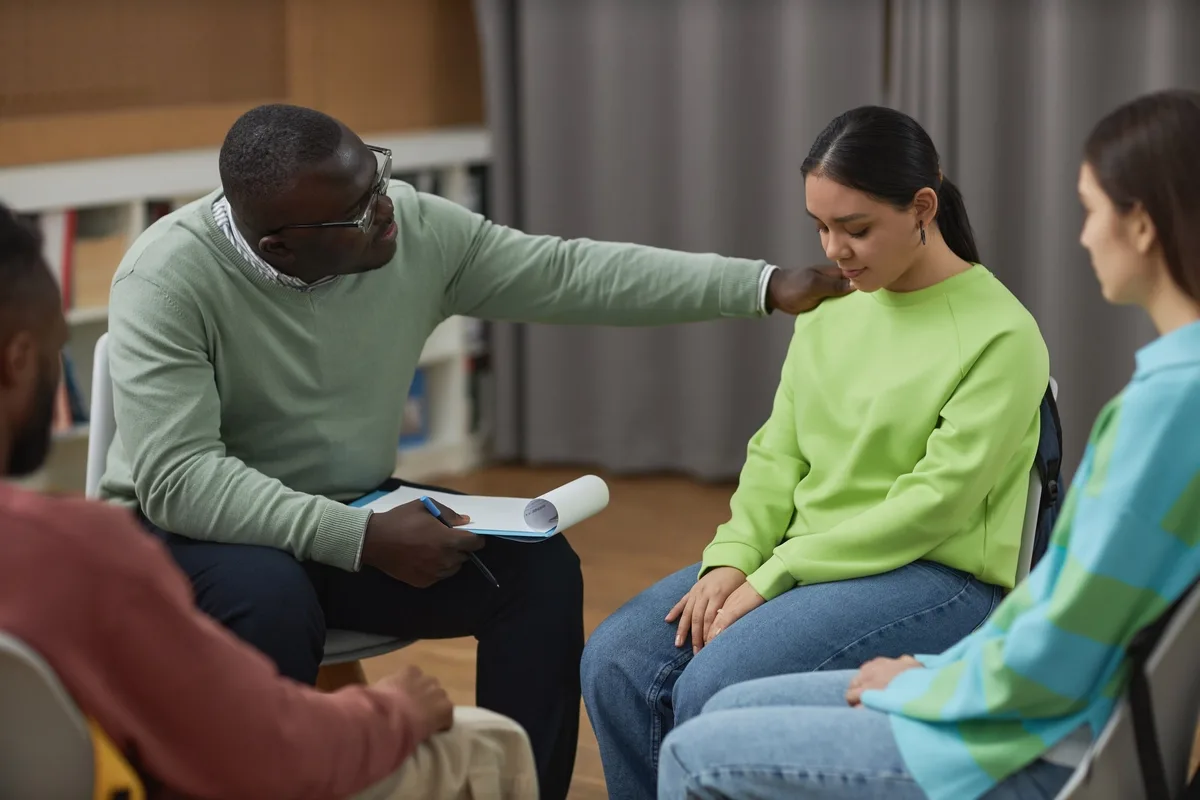24/7 Helpline:
(866) 899-221924/7 Helpline:
(866) 899-2219
Learn more about PTSD Rehab centers in Buena Park
PTSD Rehab in Other Cities

Other Insurance Options

Medical Mutual of Ohio

Cigna

Excellus

Absolute Total Care

Lucent

Kaiser Permanente

Carleon

AllWell

Molina Healthcare

Evernorth

Health Net

United Health Care

UnitedHealth Group

Horizon Healthcare Service

Covered California

GEHA

UMR

Aetna

WellPoint

Choice Care Network

Child Guidance Center
Child Guidance Center is a private rehab located in Buena Park, California. Child Guidance Center sp...

AA – Alcoholics Anonymous
AA – Alcoholics Anonymous is a non-profit rehab located in Buena Park, California. AA – Alcoholics A...















